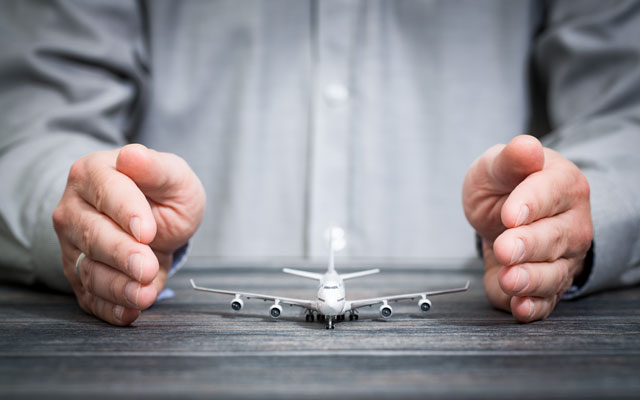IATA has outlined a temporary layered approach to biosecurity for restarting passenger flights amid the pandemic, and along with that a commitment by airline CEOs to adhere to five restarting principles.
In a press statement issued this morning, IATA said its Biosecurity for Air Transport: A Roadmap for Restarting Aviation aims to provide the confidence that governments will need to enable the reopening of borders to passenger travel; and the confidence that travellers will need to return to flying.

At the departure airport, IATA foresees several layers of protective measures, including restricted access to the terminal building; temperature screening by trained government staff at entry points; physical distancing through all passenger processes, including queue management; use of face coverings for passengers and masks for staff in line with local regulations; self-service options for check-in used by passengers as much as possible; efficient boarding and hand luggage limitations; and cleaning and sanitisation of high touch areas in line with local regulations.
In-flight, layers of protective measures include face coverings for all passengers and non-surgical masks for crew; simplified cabin service and pre-packaged catering; reduced congregation of passengers in the cabin; and enhanced and more frequent deep cleaning of the cabin.
At the arrival airport, IATA expects accelerated processing and baggage reclaim to reduce congestion and queuing as well as health declarations and robust contact tracing to be undertaken by governments, and more.
IATA stressed that these measures should be temporary, regularly reviewed, replaced when more efficient options are identified or removed should they become unnecessary.
IATA hopes two areas could be game-changers in facilitating efficient travel until a vaccine is found. Firstly, it supports testing when scalable, accurate and fast results are available. Secondly, it supports the development of immunity passports to segregate no-risk travellers, at a time when these are backed by medical science and recognised by governments.
As the mutual recognition of globally agreed measures is critical for the resumption of international travel, IATA is reaching out to governments with the Roadmap.
Alexandre de Juniac, IATA’s director general and CEO, said: “(Many governments) are planning a phased re-opening of borders in the coming months. We have a short time to reach agreement on the initial standards to support safely reconnecting the world and to firmly establish that global standards are essential to success. The vital element is coordination. If we don’t take these first steps in a harmonised way, we will spend many painful years recovering ground that should not have been lost.”
At the same time, airline CEOs on IATA’s Board of Governors have committed to five restarting principles:
- Putting safety and security first by implementing a science-based biosecurity regime and ensuring that aviation is not a meaningful source for the spread of communicable diseases
- Responding flexibly as the crisis and science evolve, by utilising new science and technology as it becomes available, developing a predictable and effective approach to managing any future border closures or mobility restrictions, and ensuring that measures are scientifically supported, economically sustainable, operationally viable, continuously reviewed, and removed/replaced when no longer necessary
- Recognising that aviation will be a key driver of the economic recovery, and to re-establish capacity that can meet the demands of the economic recovery as quickly as possible, and ensure that affordable air transport will be available in the post-pandemic period
- Meeting environment targets, such as achieving IATA’s long-term goal of cutting net carbon emissions to half of 2005 levels by 2050, and successfully implementing the Carbon Offsetting and Reduction Scheme for International Aviation (CORSIA)
- Operating to global standards which are harmonised and mutually recognised by governments




















